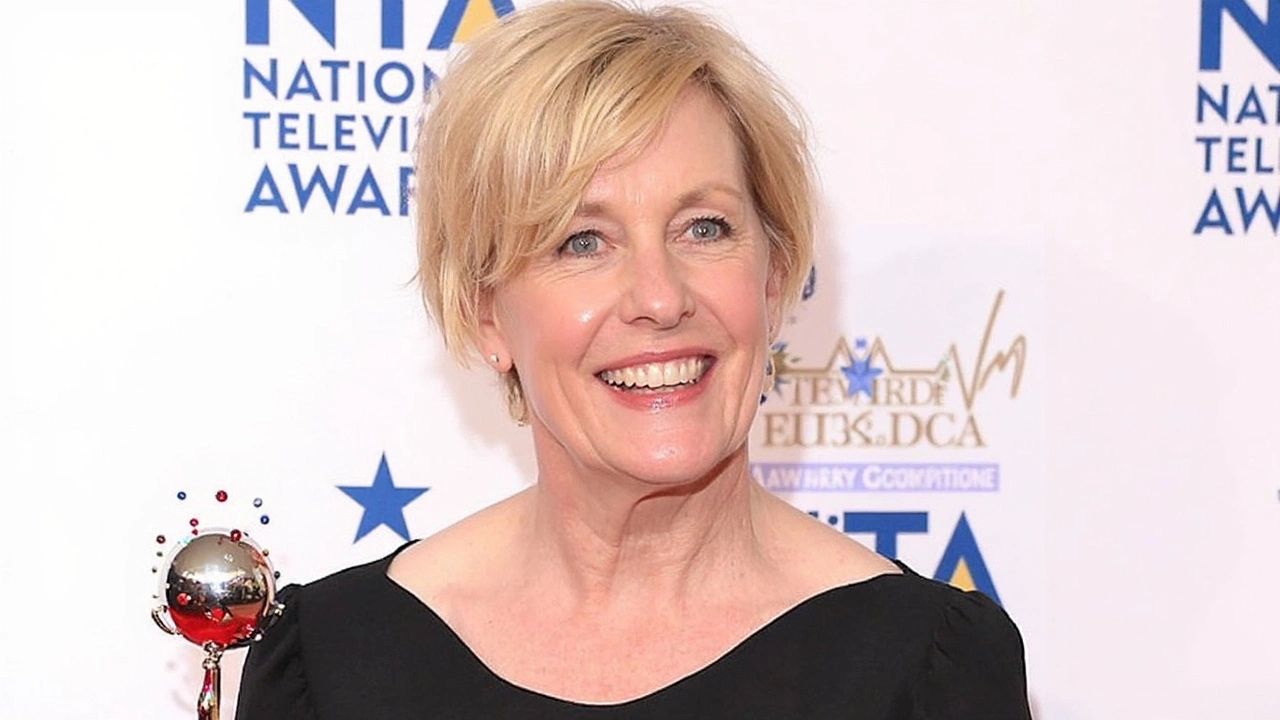The Lasting Impact of Hayley Cropper
When you think of iconic British TV moments, one that often pops up is Hayley Cropper’s emotional farewell in Coronation Street. Julie Hesmondhalgh’s journey as Hayley started in 1998, with her landing what she thought was a lighthearted role as a quirky date for Roy Cropper. Instead, she became part of a TV milestone as the first transgender character on a UK soap—a move that completely changed British television and started important conversations on representation.
Hayley was never meant to stick around. The character was introduced as a kind of plot device, bringing in some comic relief to Roy Cropper’s world. Julie found out about Hayley’s transgender storyline only after being cast, but she jumped in with heart and honesty. What could have been a running joke instead became a sensitive, complex portrayal of a character that the audience truly cared about. Hayley and Roy’s partnership turned into one of soap’s most beloved couples, winning Julie and co-star David Neilson the award for Best Onscreen Partnership more than once.
Julie picked up a National TV Award and several Soap Awards during her run, but the real win was the impact of her work—especially for LGBTQ+ viewers. Many fans today still point to her performance as a turning point for transgender visibility on British screens. Hayley’s final storyline, where she’s diagnosed with terminal pancreatic cancer and chooses assisted suicide, sent shockwaves through the country. That episode had 9.7 million people tuning in and sparked heated debate across newspapers and living rooms about euthanasia and end-of-life choices.
Building a Diverse Career Beyond the Cobbled Streets
Leaving behind fifteen years as Hayley was bittersweet for Julie. She often describes her time on Coronation Street as “life-changing,” but once Hayley’s chapter closed, she didn’t look back—she looked forward.
She jumped into all sorts of projects. You might have seen her pop up in Russell T. Davies’s drama Cucumber, alongside moments in Doctor Who, Catastrophe, Inside No. 9, and The A Word. She hit another TV high in Broadchurch (season three), where she played a rape survivor. That role got Julie a BAFTA nomination in 2018 and showed just how versatile she really is outside the world of soap.
Theatre has also been a big part of her journey. Back in 2015, she tackled an emotionally charged role in Black Roses: The Killing of Sophie Lancaster, both on stage and TV, focusing on a mother’s grief after her daughter was killed due to prejudice. That performance won her a Royal Television Society Award and reminded everyone that her success on TV was no fluke.
Julie doesn’t stick to acting—she’s just as passionate behind the scenes. She’s a founding member of Take Back, a theatre collective grounded in politics and activism. She uses her creative energy not just to entertain but to get people thinking and talking about real issues. In 2019, she pulled back the curtain with her book, Working Diary, giving fans a peek into her life balancing family, creative projects, and activism.
Now living in Manchester with her family, Julie keeps her hands full with acting, activism, and writing. Even years after saying goodbye to the Coronation Street cobbles, she’s still shaping the conversation, whether she’s on camera or taking her ideas to the stage or the page.

Arlen Fitzpatrick
My name is Arlen Fitzpatrick, and I am a sports enthusiast with a passion for soccer. I have spent years studying the intricacies of the game, both as a player and a coach. My expertise in sports has allowed me to analyze matches and predict outcomes with great accuracy. As a writer, I enjoy sharing my knowledge and love for soccer with others, providing insights and engaging stories about the beautiful game. My ultimate goal is to inspire and educate soccer fans, helping them to deepen their understanding and appreciation for the sport.
view all postsWrite a comment